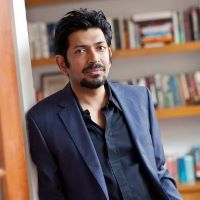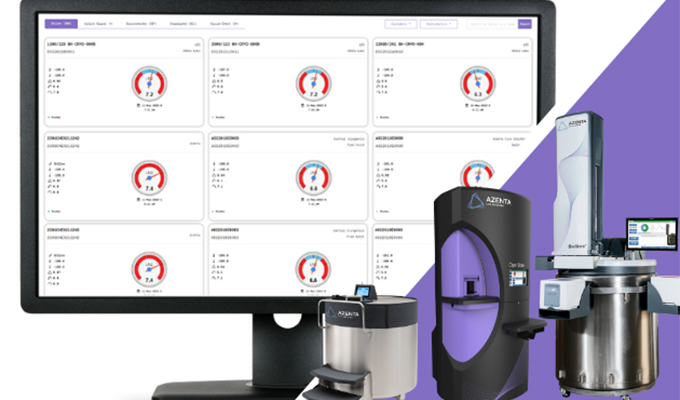Highlights from the June 2024 Bridging the Gap Webinar
What if you could transform the life of a child with leukemia by simply modifying their own cells? This is the promise of CAR T-cell therapy, a groundbreaking treatment that has already revolutionized cancer care. Yet, as Siddhartha Mukherjee, M.D., Ph.D. passionately discussed in our latest Bridging the Gap webinar, the challenge now lies in ensuring that these advanced therapies reach every corner of the globe.
Our June 2024 webinar, hosted by Azenta Life Sciences and the Emily Whitehead Foundation, explored the transformative power of storytelling, the vital role of regulatory frameworks, and the incredible potential of AI in expanding access to life-saving treatments globally, particularly CAR T-cell therapy.
Guest Speaker: Siddhartha Mukherjee, M.D., Ph.D.
Dr. Mukherjee is a distinguished oncologist and professor of medicine at Columbia University. He is also a celebrated author, known for his seminal works such as “The Emperor of All Maladies,” “The Gene,” and “The Song of the Cell.” Dr. Mukherjee’s research focuses on cancer, bone formation, cancer immunotherapy, and metabolic therapy.
Currently, he is working to expand access to CAR T-cell therapy in India and other regions.
He was joined in the webinar discussion by our panelists: Albert Ribickas from Moffitt Cancer Center and Dr. Patrick Hanley from Children’s National Hospital, along with moderator George Eastwood, the Executive Director of the Emily Whitehead Foundation, and our co-hosts, Olga Bukatova from Azenta Life Sciences and Tom Whitehead from the Emily Whitehead Foundation.
Bridging the Global Access Gap
The Power of Storytelling in Medicine
Dr. Mukherjee emphasized the critical role of storytelling in medicine, stating, “Medicine is about real human beings and real stories.” He shared his journey of documenting Emily Whitehead’s story, a pivotal moment in the history of CAR T-cell therapy. This narrative was first told in the Ken Burns documentary on Dr. Mukherjee’s book, “The Emperor of All Maladies,” and later in his writings.
Tom Whitehead echoed this sentiment, highlighting how sharing Emily’s story has inspired many and provided hope to families worldwide. “The power of telling the story and how much the media could help was when Emily’s picture was first on the cover of the New York Times,” Tom said, emphasizing the global impact of their advocacy.
Challenges and Innovations in CAR-T Therapy
The discussion delved into the challenges and innovations in CAR T-cell therapy, particularly in expanding access to underserved regions. Dr. Mukherjee recounted his efforts to establish a CAR T-cell therapy facility in India, in collaboration with local and international partners. This initiative aimed to replicate the success of facilities like the one at the Children’s Hospital of Philadelphia (CHOP) and make advanced therapies more affordable and accessible.
“In about eight months, including the months of COVID, we went from nothing to a fully functional GMP cell therapy facility and treated patients,” Dr. Mukherjee shared. This rapid development underscores the potential for scaling advanced therapies globally through collaborative efforts and innovative approaches.
The Role of Regulatory Environments
The panel also discussed the regulatory challenges in advancing cell and gene therapies. Dr. Mukherjee acknowledged the balance the FDA must strike between caution and innovation. He praised the FDA’s efforts while advocating for faster approvals to meet the urgent needs of patients. “My plea to the FDA has always been, move as fast as you can because there are patients whose lives are on the other end of the line,” he stated.
Dr. Hanley highlighted the importance of harmonizing global regulations to facilitate broader access to therapies. He noted, “If every regulation is different, we’ll never move forward,” emphasizing the need for international cooperation in regulatory standards.
The Potential of AI in Advancing Therapies
Artificial Intelligence (AI) and machine learning were identified as pivotal tools in the future of medicine. Dr. Mukherjee shared his involvement in an AI-driven drug discovery initiative, highlighting its potential to revolutionize treatment protocols and patient outcomes. He explained how AI could optimize treatment plans, predict patient responses, and even assist in discovering new therapeutic targets.
“We’ve launched probably one of the most preeminent programs to do this with the most preeminent AI company,” Dr. Mukherjee revealed, indicating the transformative potential of AI in healthcare.
Key Takeaways
The session concluded with a summary of key takeaways:
- Storytelling in Medicine: Personal narratives are crucial in connecting with patients and driving medical advancements.
- Innovations in CAR T-Cell Therapy: Collaborative efforts can rapidly scale advanced therapies, making them accessible globally.
- Regulatory Challenges: Harmonizing global regulations is essential for the broader adoption of advanced therapies.
- AI in Healthcare: AI holds significant promise in optimizing treatments and accelerating drug discovery.
Conclusion
The June 2024 session of the Bridging the Gap webinar series highlighted the collective efforts required to expand access to advanced therapies globally. Through storytelling, collaboration, regulatory innovation, and AI, the panel showcased a multifaceted approach to overcoming the barriers in healthcare.
Join us next month for another insightful session as we continue to bridge the gaps in life sciences and bring hope to patients worldwide. Register to view the recorded webinar and attend the next live session.
About the Guest
Dr. Mukherjee

Siddhartha Mukherjee, M.D., a distinguished hematologist and oncologist, born in New Delhi, India, holds degrees from Stanford University, Oxford University (as a Rhodes Scholar), and Harvard Medical School. He completed his medical training at Massachusetts General Hospital and currently serves as a professor of medicine at Columbia University and as a staff cancer physician at the university’s medical center.
Renowned for his groundbreaking studies into the composition and behavior of cancer cells and his work in cancer research, Dr. Mukherjee has authored several best-selling books including the Pulitzer Prize-winning, “The Emperor of All Maladies: A Biography of Cancer,” adapted into a PBS documentary. Elected to the National Academy of Medicine in 2023, his contributions extend to numerous publications in prestigious journals. For his contributions to science, Dr. Mukherjee was awarded the 2014 Padma Shri, one of India’s highest civilian honors.









